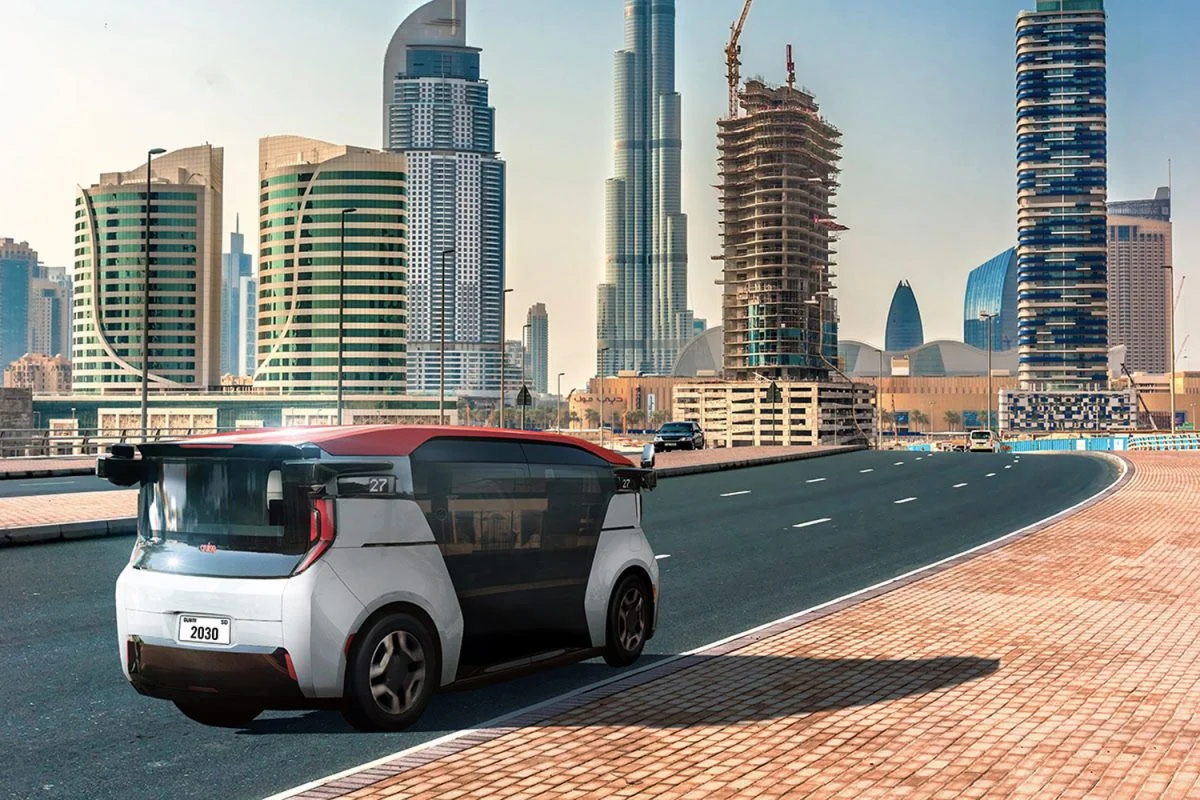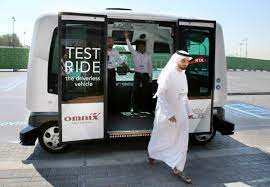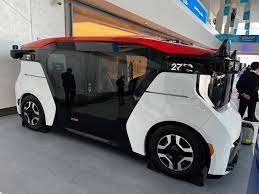Now Reading: Dubai’s Smart Cars Are Here – See the Future on Wheels 2025!
-
01
Dubai’s Smart Cars Are Here – See the Future on Wheels 2025!
Dubai’s Smart Cars Are Here – See the Future on Wheels 2025!

Table of Contents
Dubai is not just building taller skyscrapers and luxury malls—it is also speeding ahead in the race for smart transportation. The city is setting a new global standard with its focus on autonomous mobility, aiming to become one of the smartest cities in the world.
As part of its bold vision, Dubai plans to have 25% of all transport trips made by autonomous vehicles by 2030. This ambitious goal is being driven by advanced technologies, strong government support, and a commitment to sustainability and innovation.
What Is Autonomous Mobility?

Autonomous mobility refers to transport systems that operate without human drivers. This includes self-driving cars, driverless taxis, autonomous buses, and even flying drones. These systems use Artificial Intelligence (AI), sensors, cameras, and GPS to navigate safely and efficiently.
Dubai is investing in these smart solutions to reduce traffic, improve road safety, cut carbon emissions, and make commuting faster and easier.
How Dubai Is Leading the Change
1. Government-Led Vision: The Smart Dubai Strategy
Dubai’s journey toward autonomous mobility is powered by strong leadership. The Dubai Smart Self-Driving Transport Strategy, launched by His Highness Sheikh Mohammed bin Rashid Al Maktoum in 2016, is the backbone of this transformation.
The strategy aims to:
- Reduce transportation costs by 44%
- Save 396 million hours annually through better traffic flow
- Cut carbon emissions by 12%
- Prevent human error in road accidents
With this plan, Dubai is on track to become one of the first cities in the world to fully embrace driverless transport.
2. Partnerships with Global Tech Leaders
Dubai has teamed up with leading international companies to test and launch autonomous systems. For example:
- Cruise, a US-based autonomous vehicle company backed by General Motors, signed a partnership with Dubai’s Roads and Transport Authority (RTA) to deploy autonomous taxis in the city. The first fleet is expected to launch by end of 2025.
- Tesla, known for its Autopilot features, has been part of Dubai’s transport scene since 2017. The RTA even added over 200 Tesla electric vehicles to its taxi fleet.
Such collaborations ensure that Dubai stays ahead in the global mobility race.
3. Testing Zones and Tech-Friendly Infrastructure
Dubai is not just buying technology—it is building an ecosystem for it. The city has:
- Dedicated test zones for autonomous vehicles
- Smart traffic lights and sensors connected to a central AI system
- High-speed 5G networks for real-time communication
One major area is the Dubai Silicon Oasis, a hub for tech startups and innovation. Here, self-driving cars are tested in real-world traffic to make sure they are safe and reliable.
What’s on the Road Ahead?

1. Driverless Metro and Bus Systems
Dubai already operates the world’s longest driverless metro network, and now plans are underway to bring autonomous buses to main city routes. These buses will use AI to:
- Recognize traffic signals
- Detect obstacles
- Adjust routes for real-time traffic
Trials for these buses have already started in areas like Downtown Dubai and Business Bay.
2. Flying Taxis and Air Mobility
Yes, you read that right. Dubai is also working on flying taxis. The RTA and Joby Aviation, a California-based company, are testing electric vertical take-off and landing (eVTOL) aircraft. These flying taxis could be ready for commercial use by 2026.
They are expected to:
- Travel up to 300 km/h
- Carry 1-2 passengers
- Take off and land at vertiports located around the city
This could cut travel time from Dubai Marina to Dubai International Airport to just 10 minutes.
Benefits of Dubai’s Smart Mobility Plan
Dubai’s investment in autonomous transport isn’t just about cool technology—it’s about creating a better, safer, and greener city. Here’s how:
| Benefit | Impact |
|---|---|
| Reduced Accidents | Fewer crashes due to human error |
| Lower Pollution | Electric and AI-controlled vehicles cut emissions |
| Time Saved | Faster travel with less traffic and smarter routes |
| Better Accessibility | Elderly and disabled people can travel more freely |
| Economic Growth | New jobs in tech, AI, and transport sectors |
What It Means for Residents and Tourists
Whether you live in Dubai or are just visiting, the changes in transport will directly affect your daily life. Tourists may soon hop on a driverless taxi from the airport to their hotel, while residents can enjoy shorter commutes and safer roads.
Even public transport fares may drop as autonomous systems lower operating costs. Plus, with real-time apps, passengers can track, book, and rate driverless rides in seconds.
Challenges Still Ahead
Like any big transformation, there are challenges to overcome. These include:
- Public trust in AI and driverless systems
- Legal regulations and insurance models
- Cybersecurity risks
- High initial costs
But with Dubai’s future-focused leadership and strong tech foundation, these obstacles are being actively addressed through trials, workshops, and global partnerships.
Final Thoughts
Dubai is not just talking about the future of transport—it is building it right now. From self-driving taxis to flying drones, the UAE is turning science fiction into everyday reality. With each step forward, Dubai proves that innovation and bold vision can move a city—and its people—faster, safer, and smarter into the future.
Read More:- Shobha Realty Launches Its Most Luxurious Project Yet—Full Details Inside 2025





















